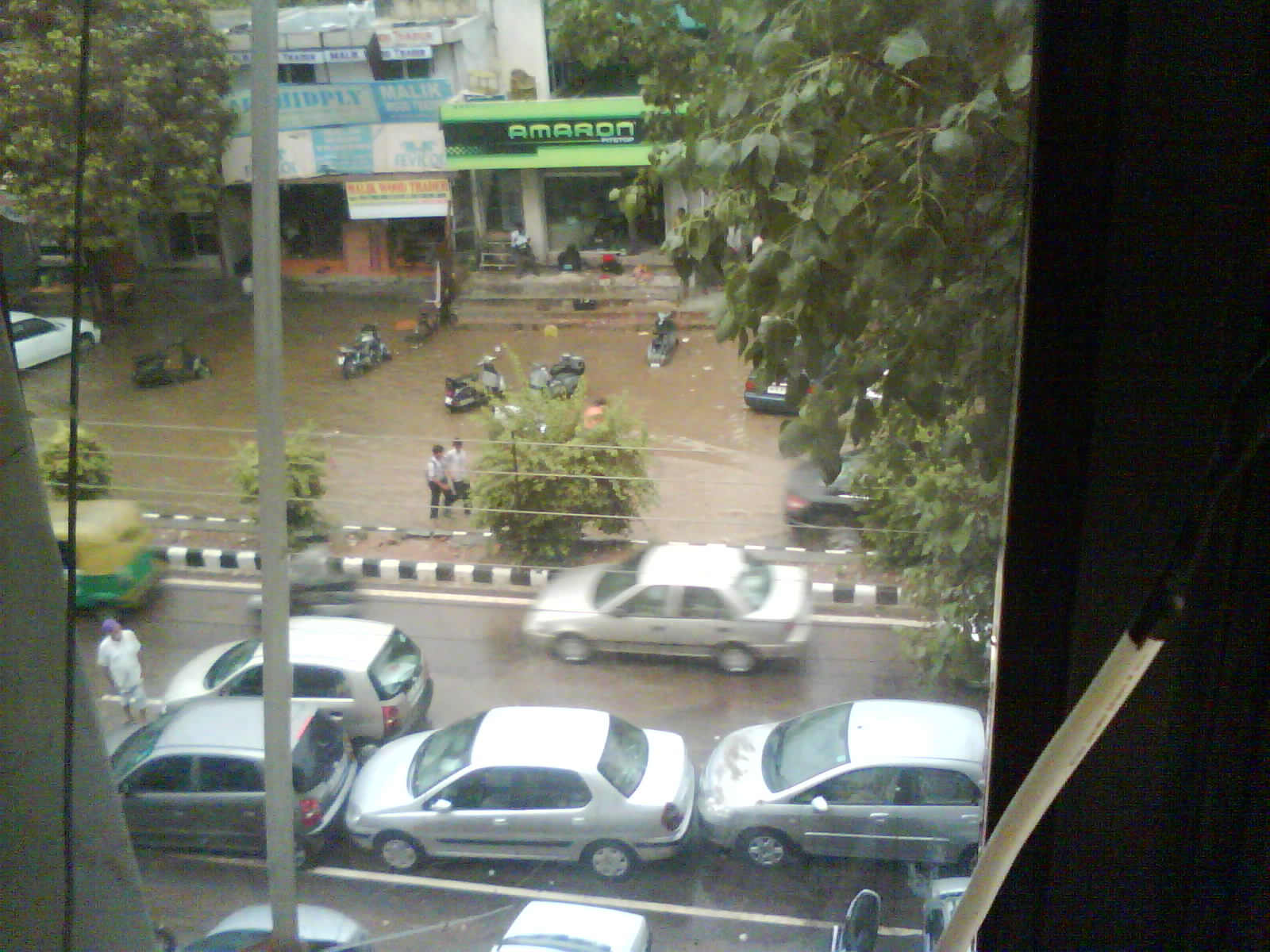GoodGuide.com now reviewing cell phones
- Free and Open Source Upstream Engagement Under Standard Company Social Performance -> Society -> Community Engagement
- User's Software Freedom Possibly Under Standard Company Social Performance -> Consumers
If you haven't tried Duck Duck Go, give it a try at duckduckgo.com Learn more about how it protects your privacy and doesn't track you.. donttrack.us If you like the above, support it being added to Firefox's search box! http://getsatisfaction.com/mozilla/topics/include_duck_duck_go_as_option_by_default_in_search_box
On June 19th, my fiancée and I returned from India. She was 26 weeks pregnant and we returned to the States to get better health care for the delivery of our baby. Health care can be a daunting thing to coordinate. We used the health care broker CBIZ to set us up with a Blue Cross EPO Plan in NJ, with the specific requirement that the pregnancy be fully covered. The problems started with the plan as soon as we arrived. Although we had specifically said we needed the plan to be effective the day we arrived, it took 20+ days for the plan to be activated and useful for us. During her 27th week of the pregnancy, contractions started and we were hospitalized. We still hadn't even received health insurance cards yet. The care we received at the University of Pennsylvania Hospital was excellent. Our daughter, Natalia, pulled through and we were allowed to go home a day earlier than expected. We finally received our insurance cards. Then, a couple of weeks later, we got news from the doctor’s office that Blue Cross wouldn’t cover our doctors office visits because we had a pre-existing condition. We contacted CBIZ immediately and they said they would take care of it. Two weeks later, we got an email asking for an additional requirement, basically saying if we didn't meet that requirement they couldn't take off the pre-existing clause off. Back in May, they required that my fiancée had proof of coverage from before we got pregnant. In August, after they’d been paid and coverage began, they changed the requirement to 1 year from date of the beginning of the Blue Cross plan, which we didn't have. The best part of this so far is that we tried to be responsible. We paid Blue Cross 300 dollars a month for this "coverage" on good faith that our pregnancy would be covered because we were advised against getting the free Medicare program by the CBIZ representative. Nor were we told that you CANNOT apply for Medicare if you have insurance. About 2 months ago, I went to work like any normal day, unaware that I would be at the hospital with my fiancée for the rest of the week. Our Natalia hadn't made it. (We delivered at Virtua Hospital in Voorhees, which, again, provided great care and as much comfort as they could given the circumstances) The recovery and grief have been hard enough. What’s worse, CBIZ has stopped returning our emails and calls. My fiancée called Blue Cross about 10 times and got different stories every time she called, until she finally got a call with the same story about needing the 1 year prior coverage (this after getting told that the pre-existing clause would be removed). About 2 weeks after our last hospital visit "Obamacare" as it is referred by pundits took effect. If only it had kicked in 2 months ago. He made pre-existing conditions a thing of the past, and we are very grateful that no one will have to go through that much health insurance hell again. We don't know why our daughter didn't make it, but we are sure that the stress of dealing with health "insurance" definitely didn't help our well-being. When I was getting ready to be a father one of the biggest things that scared me was that I was bringing a child into this world, with all of its horrific problems. She didn't make it, but that feeling has stayed with me. I will be volunteering with a local Democrat this election season, because the parts of this story that we can help we can't let happen again. Our daughter, Natalia Michaella Woods-Quigley, was conceived around January 1st 2010. She loved to listen to music (WXPN in Philly being her favorite radio station.) Natalie loved eating all kinds of food (except Indian). Her favorites were potatoes, pasta, cantaloupe, and burgers. She was very opinionated, kicking her opinions every moment. It's amazing how much (and how little) you can learn about someone when they aren't even born yet. It's amazing how deeply you can fall in love with someone you can't even see. We love you Natalie. Bryan & Erica Comments
Current Setup: An application has to be limited by the most lax permission in order to maintain the functionality. For an application that will ever have access to the user's files this means it needs to have access to all of the users files. Possible Solution: Have the file browser/chooser application give temporary permissions for the specific chosen files/folder to the application that launched the file chooser. Care will need to be taken so that "recent files" in applications still work as expected. This may require a per application recent file list to be stored in the security system. Example Use Cases / How it does it: Picture Viewer 1) User clicks on Picture with an active exploit in it (on the desktop) 2) Opens with default photo viewer 3) The exploit now has full control of the photo viewer, but can only access: Photo viewers recently opened photos The photo with the exploit Photo viewer config Anything else the photo viewer can access (say uploading to flickr) All other photo's in library (if configured, which in this example it is not) *) All other documents remain secure... How it did it. (behind the scenes): the user opened 4 pictures from the file manager, the application had those 4 pictures added to it's "per application recent file permission list" thereby enabling the user to open them directly from the photo manager at any point in the future. That list was customized for the application to limit the list to the 4 most recent due to the application only having 4 option in it's "recent list". This list is used by apparmor/selinux to enable access to the pictures for the application. Rhythmbox 1) User configures library (using directory chooser)\ - Called with options to set up a permanent user/application permission for the music folder in question - this allows rhythmbox to access all files contained within 2) User listens to internet radio and finds a malicious file 3) The malicious file deletes everything it can touch, the user loses her entire music collection, but has all documents intact. When configuring the rhythmbox library directory, Rhythmbox used a special call to the directory chooser to ask it to switch it's permanent directory to whatever the user chooses, thereby adding the necessary rules as well. Of course, if you can already do this with selinux/apparmor (at about the same complication level) please tell me how :)Comments
>Inspired from the comment "It saves zero memory" from here
https://bugs.launchpad.net/ubuntu/+source/upstart/+bug/501241
I've been trying to keep my eye on Ubuntu's memory usage for some time now, but there has never been a great way to measure memory usage. Here is an alternate memory tracking idea.. Don't bother trying to observe it directly. These are the steps I followed to prove that removing tty2-tty6 will save us more than zero memory.
Mostly kicked off by this post (Dead, now wayback machine)
| OS | Required / Realistic |
| Ubuntu (full Gnome) | 384 MB / 512 MB |
| Xubuntu | 192 MB / 256 MB |
| Windows XP | 64 MB / 128 MB |
| Windows Vista Home Basic | 512 MB |
| Windows Vista (Other) | 1 GB |
| Windows 7 32 bit | 1 GB |
| Windows 7 64 bit | 2 GB |
I went to the US Embassy for the 4th of July and got a beef cheeseburger and french fries... In the red circle is the US Ambassador to India. He gave a short and sweet speech. This is during the pledge...
This is during the pledge...
 There were fireworks as well! (btw, do we let embassy's in DC use fireworks?)
There were fireworks as well! (btw, do we let embassy's in DC use fireworks?)
 And then there was cake..
And then there was cake.. Note: Pictures not actually in chronological order.
Note: Pictures not actually in chronological order.
About 2 months after it was requested I am finally providing a couple pictures....
This is the MIA office building we only have 1 floor, which also (luckily) happens to be the only floor with air conditioning.  And this is where I live.. (bottom right balcony is mine)
And this is where I live.. (bottom right balcony is mine)
 And last but actually interesting :), is the view from my office window when there is a bit of rain outside.
And last but actually interesting :), is the view from my office window when there is a bit of rain outside.

>Why do you like Free Software and Ubuntu? My Answer: I consider software important. Really really important. Why? Most people don't really understand just how much power software has over our current society. Let's pretend all the software in the world was really just one single person. What could that person do?